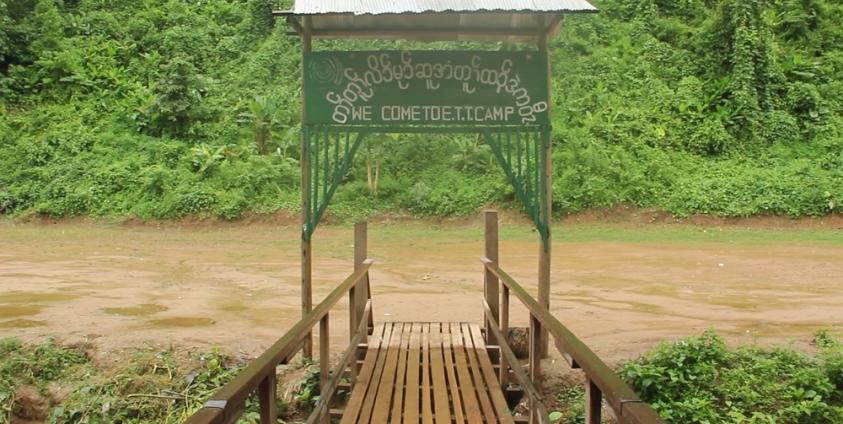An internally displaced persons camp in Kayin (Karen) State is making a last-ditch appeal for international donors to continue providing aid. All food assistance to the shelter for nearly 3,000 people is set to dry up at the end of this month.
The support committee at the Ei Tu Hta IDP submitted a letter to international donors on September 4.
“We have appealed [to the donors] to understand that neither the IDPs [in Kayin State], nor the refugees [just over the border] can be sent back home without political reforms and political assurances due to the insecure situation. We need [the donors] to continue the provision of humanitarian aid to the camps,” P’doh Mahn Mahn, the camp committee’s chair and a former secretary for the Karen National Union (KNU), told KIC News.
The letter also called for short-term rehabilitation programs, including education and livelihood training.
The KNU signed a bilateral ceasefire in 2012, and was among the eight signatories of the nationwide ceasefire agreement in 2015.
Following the ceasefire and return of relative stability to Kayin State, pressure has mounted on displaced villagers to return home, and funding for their shelters has dried up.
The IDP camp committee claimed however that there has not been any concrete progress in Myanmar’s peace process since the nationwide ceasefire was signed. Meanwhile Tatmadaw strongholds continue to dot the displaced persons’ villages, making the families feel there is no guarantee for their safety if they return.
The Ei Tu Hta IDP Camp was opened as a temporary shelter in 2006 to house Karen civilians fleeing fighting between the KNU and the Tatmadaw.
The camp currently hosts 2,670 people and rice is the main subsidy for the IDPs. Each person under the age of six receives six kilos per month, while camp residents above the age of six receive twelve kilos per month.
Around 100 IDPs, including residents of Taungoo and Nyaunglaybin townships in Bago Region, and Hpapun township in Kayin State, voluntarily returned home in early June amid the announcement that funding for the camp would soon end.
The Australian Karen Organization told KIC News on August 27 that it would try to meet with the Australian Refugee Council concerning aid to Ei Tu Hta IDPs.
Officials from Myaing Gyi Ngu IDP camp in Hlaingbwe township told KIC News last week that over 6,000 IDPs there are also currently facing food shortages.
Funding for camps along the Thai-Shan border is expected to run out in October, while the official Karen camps in Thailand have been hit with major funding cuts. Over 100 families from those camps have reported registered with the UN-run Voluntary Repatriation Center to return home this year.







